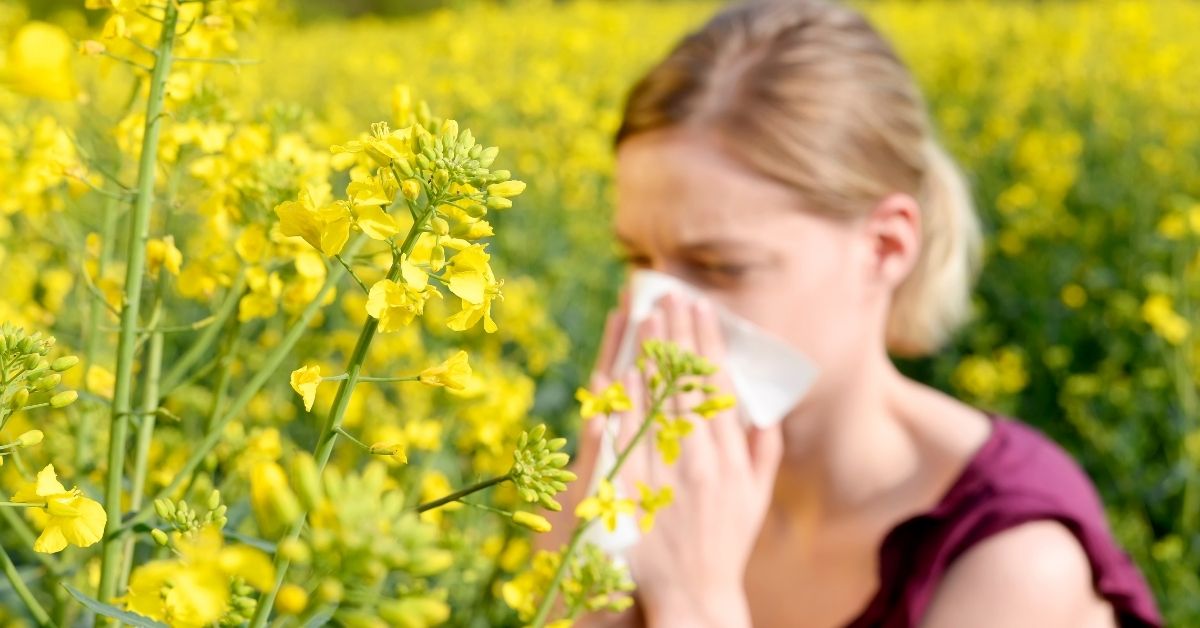Wondering how to beat hay fever in Redditch, The Wirral and Middlesbrough?
With Hay fever season currently in full swing, we know that allergies affect everyone in different ways. For some, hay fever presents a mild inconvenience. However, in some cases it can stop you from enjoying those warmer days outside. Don’t let hay fever get in the way – whether your symptoms are mild or severe, we are here to help you beat hay fever in Redditch, The Wirral and Middlesbrough. We have compiled this useful guide including top tips, as well as potential treatments to help you manage your seasonal symptoms.
What is hay fever?
Hay fever (also known as Seasonal Rhinitis), represents one of the most common allergies to suffer from in the UK. You are more susceptible to hay fever if you have a family history of conditions such as allergies, asthma or eczema. Hay fever correlates with particular times of year, as it is exacerbated by high pollen counts. Normally, hay fever season runs between late March and September, when it is especially humid and warm, as well as windy. Moreover, unlike a cold, which will normally go away after 1-2 weeks, hay fever lasts for weeks or even months.
What is hay fever caused by?
Hay fever is caused by the body producing allergic antibodies (or IgE) in response to allergens such as pollen. From May to July, grass pollen is the most common cause of hay fever, with tree pollen being more frequent between February and June. Weed pollen can also provoke allergic reactions from June to September.

How do I know if I have hay fever?
Hay fever can be recognised by a variety of symptoms; these include:
- Tiredness
- Headache
- Earache
- Sneezing and coughing
- A loss of smell
- An itchy throat, mouth, nose or ears
- Red, itchy or watery eyes
- A blocked or runny nose
Moreover, if you suffer from asthma, hay fever may also manifest as shortness of breath, wheezing and coughing, as well as tightness in your chest. You can find a list of further symptoms and guidance on the Allergy UK website, as well as on the NHS website.
If you are looking to differentiate between your common symptoms and get to the root of your allergies – we now offer allergy testing against over 290 allergens.

What can I do to treat hay fever myself?
Unfortunately, there is currently no way in which hay fever can be fully cured or prevented. However, there are varying methods available to help ease your symptoms.
The NHS recommends that to ease your symptoms, you should try:
- Staying indoors wherever possible
- Vaccuming regularly, as well as dusting with a damp cloth
- Wearing wraparound sunglasses to prevent pollen from getting into your eyes
- Keeping windows and doors shut as much as you possibly can
When looking to avoid aggravating your symptoms, you are advised not to:
- Cut or walk on grass, especially when it has been freshly cut
- Stay outside for prolonged periods of time
- Allow your clothes to dry outside, as this will allow them to catch pollen
- Keep fresh flowers inside
- Smoke, or be surrounded by excessive smoke, as this can exacerbate your symptoms

How can we help you beat hay fever in Redditch, The Wirral and Middlesbrough?
We understand how much of a nuisance hay fever can be, especially in the warmer months. That’s why if you visit us in store, our dedicated Pharmacy team will be more than happy to give you advice. Following your description of your symptoms, we can also recommend the best treatments to suit your individual needs. These include nasal sprays, tablets and antihistamine drops, which will help mitigate symptoms such as itchy or watery eyes, sneezing and a blocked nose.
Don’t let hay fever get in the way of your daily life –
Call us or visit us in store today; let us help you ease your seasonal symptoms.
We offer a variety of services that are tailored to suit your needs; we are here for you, whenever you need us.
This post was written on behalf of Knights Pharmacy by Carla Moore from Pharmacy Mentor





